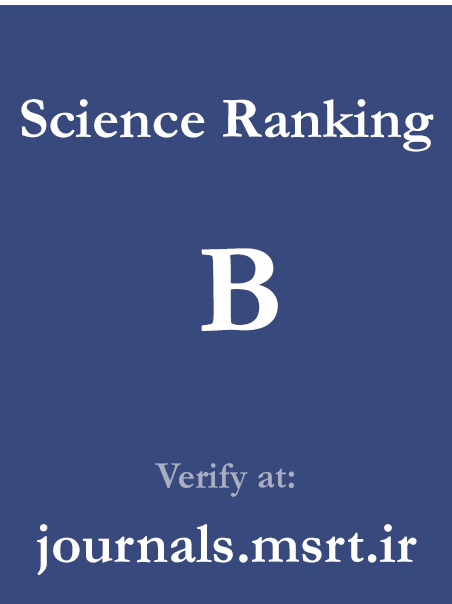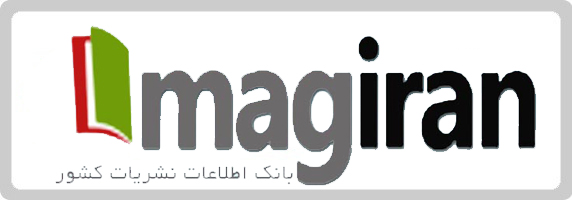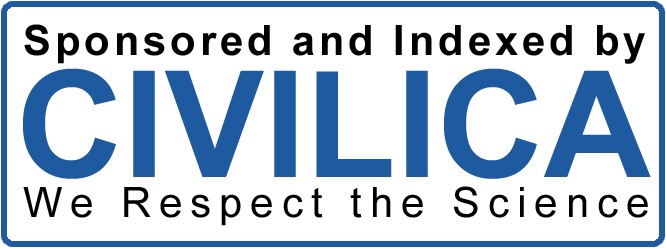Identifying the Components of a Personal Development Program Model Based on Workplace Learning in the Educational System
Keywords:
Workplace learning, Personal development, Educational system, Qualitative analysis, Professional competencies, Teacher training, Organizational learningAbstract
This study aimed to identify the key components of a personal development program model based on workplace learning within the educational system. Employing a qualitative research design, the study utilized semi-structured interviews with 13 purposefully selected educational experts, including curriculum specialists and professionals affiliated with the Ministry of Education. Participants were chosen through purposive sampling and interviews continued until theoretical saturation was achieved. The data collection process was supported by document analysis involving scholarly articles, reports, and educational policy documents. Thematic analysis was carried out through qualitative content analysis using open, axial, and selective coding to extract meaning units, categorize concepts, and develop a comprehensive model. The validity of findings was enhanced through triangulation with expert opinions and theoretical literature in the field. Analysis of the interviews led to the identification of ten main components essential for personal development through workplace learning: problem-solving skills, job knowledge, creativity, innovation and ideation, critical thinking, achievement motivation, team spirit, communication skills, resilience, and learning motivation. These components were derived from 40 open codes extracted from expert responses. The findings confirmed that workplace learning contributes to the development of both cognitive and socio-emotional competencies. The presence of contextual learning opportunities in professional environments fosters continuous improvement, reflective practice, and collaborative growth among educators. The study presents a theoretically grounded and contextually validated model of personal development tailored to the educational system. The findings emphasize the need for educational institutions to integrate development programs within authentic workplace settings, prioritizing holistic competency-building over isolated training activities. This model has practical implications for policy design, teacher training, and institutional leadership seeking to enhance professional growth through workplace-embedded strategies.
Downloads
References
1. Dillon J. The Modern Learning Ecosystem: A New L&D Mindset for the Ever-Changing Workplace: Association for Talent Development; 2022.
2. Riggio RE. Social Skills in the Workplace. The Wiley Encyclopedia of Personality and Individual Differences2020. p. 527-31.
3. Suarta IM, Suwintana IK, Sudhana IFP, Hariyanti NKD. Employability Skills Required by the 21st Century Workplace: A Literature Review of Labor Market Demand. 2017. doi: 10.2991/ictvt-17.2017.58.
4. Ritter B, Small EE, Mortimer J, Doll JL. Designing Management Curriculum for Workplace Readiness: Developing Students’ Soft Skills. Organizational Behavior Teaching Review. 2017;42(1):80-103. doi: 10.1177/1052562917703679.
5. Maran TK, Liegl S, Davila A, Moder S, Kraus S, Mahto RV. Who fits into the digital workplace? Mapping digital self-efficacy and agility onto psychological traits. Technological Forecasting and Social Change. 2022;175:121352. doi: 10.1016/j.techfore.2021.121352.
6. Kaneko A. Communication Apprehension in the Workplace: The Role of Position and Facilitation Skills. Business and Professional Communication Quarterly. 2024. doi: 10.1177/23294906241295696.
7. Gribincea T, Ciulei F. The Need for Personal Development of the Manager of the School Organization in the Context of Change. Moldoscopie. 2023(1(98)):142-9. doi: 10.52388/1812-2566.2023.1(98).12.
8. Khairiah AA, Amin A, Muassomah M, Mareta M, Sulistyorini S, Yusuf M. Challenges to professional teacher development through workplace culture management. Int J Eval & Res Educ ISSN. 2024;2252(8822):8822. doi: https://doi.org/10.11591/ijere.v13i2.25666.
9. Chorbadzhiyska O. Impact of Communication Skills on Personal Development in Modern Organizations. Science International Journal. 2024;3(4):93-7. doi: 10.35120/sciencej0304093c.
10. Liénard A, Merckaert I, Libert Y, Bragard I, Delvaux N, Étienne A-M, et al. Transfer of Communication Skills to the Workplace During Clinical Rounds: Impact of a Program for Residents. Plos One. 2010;5(8):e12426. doi: 10.1371/journal.pone.0012426.
11. Olaleye BR, Lekunze JN. Emotional Intelligence and Psychological Resilience on Workplace Bullying and Employee Performance: A Moderated-Mediation Perspective. Journal of Law and Sustainable Development. 2023;11(12):e2159. doi: 10.55908/sdgs.v11i12.2159.
12. Rostamzadeh Ganji E, Nemat V. Presenting a Model for Enhancing Psychological Well-being and Reducing Stress among Mine Workers in the Workplace. International Journal of Innovation Management and Organizational Behavior (IJIMOB). 2023;3(2):89-99. doi: 10.61838/kman.ijimob.3.2.11.
13. Priscilla YG, Maharani D, Muchsinati ES. Analysis the Influence of Motivation, Work Environment, Workplace Spirituality, and Leadership Style on Organizational Citizenship Behavior (OCB), with Job Satisfaction as a Mediating Factor, among Employees in Beauty Clinics in the City of Batam. International Journal of Business, Economics, and Social Development. 2024;5(1):54-63. doi: 10.54443/ijebas.v1i2.78.
14. Mohammadi H, zargar m, vakil Alroaia Y, Hematian H. Investigating the Effect of Internet of Things on Human Resource Development and Training in the Organization (Case Study: State Airlines). Quarterly Journal of Managing Education In Organizations. 2022;11(1):99-118. doi: 10.52547/meo.11.1.99.
15. Varhama LM, Báguena MJ, Toldos MP, Beleña MÁ, Roldán MC, Díaz A, et al. Dysfunctional Workplace Behavior Among Municipal Employees in Spanish and Finnish Cities: A Cross-National Comparison. Perceptual and Motor Skills. 2010;110(2):463-8. doi: 10.2466/pms.110.2.463-468.
16. Zhao H, Peng Z, Sheard G. Workplace ostracism and hospitality employees’ counterproductive work behaviors: The joint moderating effects of proactive personality and political skill. International Journal of Hospitality Management. 2013;33:219-27.
17. Ghanbary Vanani R, Danaee Fard H, Kazemi SH, Delkhah J. Understanding Strategies to Enhance Employees’ Well-being in the Workplaces in Iranian Public Organizations: Qualitative Study. Journal of Public Administration. 2022;14(4):554-79. doi: 10.22059/jipa.2022.343684.3163.
18. Hajjami O, Crocco OS. Evolving Approaches to Employee Engagement: Comparing Antecedents in Remote Work and Traditional Workplaces. European Journal of Training and Development. 2023. doi: 10.1108/ejtd-10-2022-0103.
19. Bauer W, Link M, Ganz W. Successfully Developing Workplace-Related Skills Using Digital Assistance Systems. 2021:1-22. doi: 10.30844/wgab_2021_1.
20. Mainert J, Niepel C, Murphy KR, Greiff S. The Incremental Contribution of Complex Problem-Solving Skills to the Prediction of Job Level, Job Complexity, and Salary. Journal of Business and Psychology. 2019;34(6):825-45. doi: 10.1007/s10869-018-9561-x.
21. Sheh YS, Hanapi Z, Ramlee M, Kiong TT. Soft Skills Among Hearing Impaired Graduates for Sustainability and Well-Being in Workplace. International Journal of Academic Research in Business and Social Sciences. 2020;10(5). doi: 10.6007/ijarbss/v10-i5/7187.
Downloads
Published
Submitted
Revised
Accepted
Issue
Section
License
Copyright (c) 2025 Seyedeh Zahra Hadian, Ladan Salimi, Vahid Fallah (Author)

This work is licensed under a Creative Commons Attribution-NonCommercial 4.0 International License.



